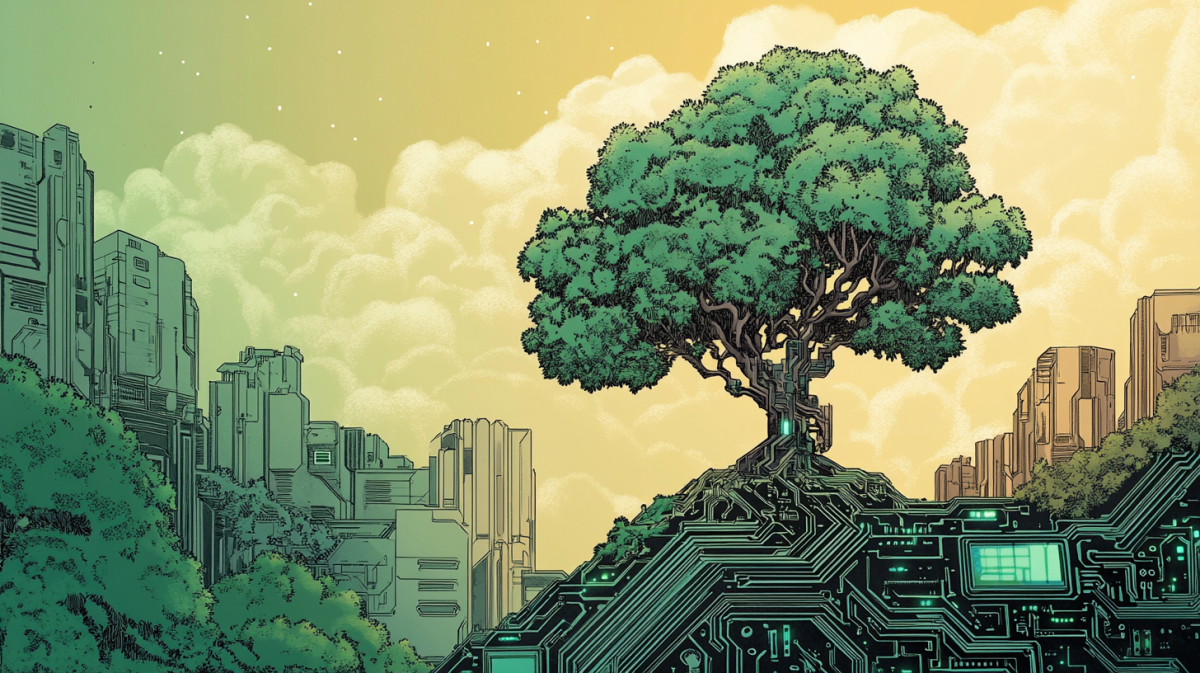As internet giants like Google and Facebook continue to redefine how they use and interpret user data, it feels like we’re at a crossroads for the future of the web. The early days of the internet were filled with excitement and promise, there was this notion that it would be a place of openness, where people could connect and share freely. But as we’ve moved into a world dominated by centralized platforms and data-driven marketing, we’ve lost sight of that original vision. I still believe in the potential of the internet, but I think we need a shift, a return to the kind of web where users have control over their experience, where things feel more organic and community-driven and where we all contribute and receive in a more equitable way.
I like to call this idea The Honest Web, a place where transparency is at the core, where we own our data and where we’re marketed to on our own terms. It’s not about interrupting or tricking users but about creating a web where trust is built into the experience. A web where content finds you because it’s relevant, not because an algorithm decided it should.
How It Should Work
Imagine this: you’re searching for something online. Instead of being bombarded with banner ads and pop-ups, you find exactly what you’re looking for, a blog post by a brand that not only meets your needs but also feels honest and transparent. It talks openly about the strengths and weaknesses of the product, much like how you might read an Amazon review. This isn’t just wishful thinking; it’s where we’re already headed with content marketing and native ads. Brands that are open and transparent about their products and services are seeing stronger loyalty and engagement because they’re being real with their audiences.
I think about how marketing has evolved over the years. We’ve moved from interruptive tactics like pop-ups and banner ads to more integrated approaches like native ads and content marketing. But there’s still room for improvement. We’ve seen how companies like Facebook had to tweak their algorithms to ensure that users weren’t overwhelmed by irrelevant brand content. Just because someone liked a page didn’t mean they wanted to see every post from that brand in their feed. It’s these kinds of shifts, toward relevance and transparency, that give me hope for where the web could go.
A Natural Progression
Looking back at the early days of SEO, we can see a clear evolution. What was once considered best practice, like keyword stuffing and link farming, is now viewed as deceitful and black-hat. Google, to their credit, has continually worked to refine their algorithms to ensure that the best content rises to the top. But it’s still a centralized system. The Honest Web would take this idea further by decentralizing how content is ranked and discovered, allowing the community to play a more significant role in what gets seen and shared.
The concept of decentralization isn’t new, and it’s something Tim Berners-Lee, the creator of the World Wide Web, has been advocating for since the early days. His vision for the semantic web, where information is structured in such a way that machines can understand it, ties in perfectly with my hopes for an honest web. Berners-Lee’s more recent work, like his Solid project, is all about giving users control over their data, which aligns with this idea of a more user-driven internet.
Jaron Lanier, one of the pioneers of virtual reality, has also been critical of the current state of the web. He’s often talked about the need for a digital economy that values human contributions rather than exploiting them. His idea of a more human-centered interne, where people are compensated for the value they provide, fits into this vision of a web where we’re not just the product, but active participants in shaping the experience.
The Semantic Web and Honest Connections
This idea of the honest web also leans into the possibilities of the semantic web. The semantic web was Tim Berners-Lee’s original idea for how the internet could evolve, making data machine-readable so that systems could understand context, not just keywords. Today, we’re already seeing the beginnings of this with things like Google’s Knowledge Graph and smart assistants like Google Now, which pull from a vast array of structured data to provide answers without needing to click through links. But what if this concept went further and it wasn’t just Google controlling that data? What if it was more decentralized, with users having a say in how their information is used and shared?
When we think about where the internet is going, I can’t help but imagine a world where we’re no longer just screen names and avatars but real extensions of ourselves online. McLuhan’s famous phrase, “the medium is the message,” feels especially relevant here. The way we interact with content, the structure and flow of the web itself, will shape how we understand and trust the information we receive. In the honest web, it’s not just about consuming information; it’s about how that information reaches us in a way that feels authentic and transparent.
The internet has the potential to evolve into something more than just a place for transactions and ads. It can become a global network of honest connections, where content rises because it’s relevant and helpful, not because it’s been optimized to manipulate clicks.
A Future We Can Hope For
At its core, my hope for the web is that it becomes a place where we all have ownership, where we all contribute and where security and privacy are fundamental principles, not afterthoughts. When we’re no longer concerned about how our data is being used, new opportunities for interaction and innovation can emerge. We could see entirely new mediums, whether it’s through augmented reality, virtual reality, or something we haven’t even imagined yet, that allow us to engage with the global web of information in ways that feel natural and intuitive.
I imagine a web where equity is built in, where everyone who contributes gets something in return and where content finds its way to those who need it because it’s good, not because it’s gamed by an algorithm. When I think about the future of the web, I see a return to the principles of openness and community that originally defined it.
We’re still a long way from this vision, but I believe it’s possible. Technologies like blockchain and decentralized networks are already pushing us in this direction. And while it may not happen overnight, I’m optimistic that we’ll get there. It’s not just about building better systems; it’s about creating an internet that feels more human, where trust is earned, privacy is respected and the power is truly in the hands of the users.
This is the web I hope for: a place where we own our data, where we control how we’re marketed to and where new ways of interacting with information can flourish. It’s a vision of the internet that’s honest, decentralized and built for everyone.


2 replies on “The Honest Web”
[…] think native ads are an early permutation of the future of digital marketing. It’s painfully obvious that all other forms of interruption marketing are on the decline. […]
[…] will continue to dominate the digital marketing space until we reach what I like to call “The Honest Web“. There are still obstacles to overcome but the tools are finally available to create the […]